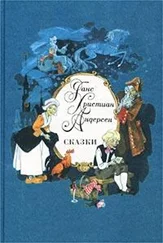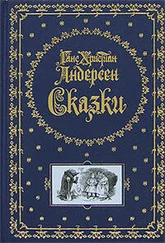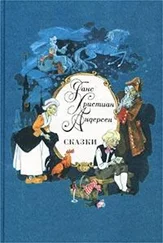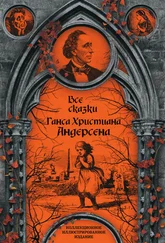Ганс Андерсен - O. T., A Danish Romance
Здесь есть возможность читать онлайн «Ганс Андерсен - O. T., A Danish Romance» — ознакомительный отрывок электронной книги совершенно бесплатно, а после прочтения отрывка купить полную версию. В некоторых случаях можно слушать аудио, скачать через торрент в формате fb2 и присутствует краткое содержание. Жанр: foreign_prose, literature_19, Европейская старинная литература, foreign_antique, на английском языке. Описание произведения, (предисловие) а так же отзывы посетителей доступны на портале библиотеки ЛибКат.
- Название:O. T., A Danish Romance
- Автор:
- Жанр:
- Год:неизвестен
- ISBN:нет данных
- Рейтинг книги:4 / 5. Голосов: 1
-
Избранное:Добавить в избранное
- Отзывы:
-
Ваша оценка:
- 80
- 1
- 2
- 3
- 4
- 5
O. T., A Danish Romance: краткое содержание, описание и аннотация
Предлагаем к чтению аннотацию, описание, краткое содержание или предисловие (зависит от того, что написал сам автор книги «O. T., A Danish Romance»). Если вы не нашли необходимую информацию о книге — напишите в комментариях, мы постараемся отыскать её.
O. T., A Danish Romance — читать онлайн ознакомительный отрывок
Ниже представлен текст книги, разбитый по страницам. Система сохранения места последней прочитанной страницы, позволяет с удобством читать онлайн бесплатно книгу «O. T., A Danish Romance», без необходимости каждый раз заново искать на чём Вы остановились. Поставьте закладку, и сможете в любой момент перейти на страницу, на которой закончили чтение.
Интервал:
Закладка:
“That is glorious!” exclaimed Otto. “An affecting thought! His master has sunk in the depth, and the faithful log yet awaits him. Had that picture only fallen to my lot!”
“It is lovely!” said Sophie, and a melancholy glance made the young girl still more beautiful.
Soon after Wilhelm’s turn came.
“Open the packet, thou shalt see
The very fairest gaze on thee!”
ran the verse. He opened the packet, and found within a small mirror. “Yes, that was intended for a lady,” said he; “in that case it would have spoken the truth! in my hands it makes a fool of me.
“For me nothing certainly remains but my number!” said Otto to his neighbor, as all the gifts appeared to be distributed.
“The last is number 33,” said the cousin, and drew forth a roll of paper, which had been hidden among the moss. It was unrolled. It was an old pedigree of an extinct race. Quite at the bottom lay the knight with shield and armor, and out of his breast grew the many-branched tree with its shields and names. Probably it had been bought, with other rubbish, at some auction, and now at Christmas, when every hole and corner was rummaged for whatever could be converted into fun or earnest, it had been brought out for the Christmas tree. The cousin read the following verse:—
“Art thou not noble?—then it in far better;
This tree unto thy father is not debtor;
Thyself alone is thy ancestral crown.
From thee shall spring forth branches of renown,
And if thou come where blood gives honor’s place,
This tree shall prove thee first of all thy race!
From this hour forth thy soul high rank hath won her,
Not will forget thy knighthood and thy honor.”
“I congratulate you,” said Wilhelm, laughing. “Now you will have to pay the nobility-tax!”
Several of the ladies who stood near him, smiling, also offered a kind of congratulation. Sophie alone remained silent, and examined the present of another lady—a pretty pincushion in the form of a gay butterfly.
The first row now rose to examine more nearly how beautifully the Christmas tree was adorned. Sophie drew one of the ladies away with her.
“Let us look at the beautiful statues,” said she; “the Shepherd-boy and the Mercury.”
“That is not proper,” whispered the lady; “but look there at the splendid large raisins on the tree!”
Sophie stepped before Thorwaldsen’s Shepherd-boy. The lady whispered to a friend, “It looks so odd that she should examine the figures!”
“Ah!” replied the other, “she is a lover of the fine arts, as you well know. Only think! at the last exhibition she went with her brother into the great hall where all the plaster-casts stand, and looked at them!—the Hercules, as well as the other indecent figures! they were excellent, she said. That is being so natural; otherwise she is a nice girl.”
“It is a pity she is a little awry.”
Sophie approached them; both ladies made room for her, and invited her most lovingly to sit clown beside them. “Thou sweet girl!” they flatteringly exclaimed.
CHAPTER V
“Hark to trumpets and beaten gongs,
Squeaking fiddles, shouts and songs.
Hurra! hurra!
The Doctor is here;
And here the hills where fun belongs.”
We will not follow the principal characters of our story step for step, but merely present the prominent moments of their lives to our readers, be these great or small; we seize on them, if they in any way contribute to make the whole picture more worthy of contemplation.
The winter was over, the birds of passage had long since returned; the woods and fields shone in the freshest green, and, what to the friends was equally interesting, they had happily passed through their examen philologicum. Wilhelm, who, immediately after its termination, had accompanied his sister home, was again returned, sang with little Jonas, reflected upon the philosophicum, and also how he would thoroughly enjoy the summer,—the summer which in the north is so beautiful, but so short. It was St. John’s Day. Families had removed from Copenhagen to their pretty country-seats on the coast, where people on horseback and in carriages rushed past, and where the highway was crowded with foot-passengers. The whole road presented a picture of life upon the Paris Boulevard. The sun was burning, the dust flew up high into the air; on which account many persons preferred the pleasanter excursion with the steamboat along the coast, from whence could be seen the traffic on the high-road without enduring the annoyance of dust and heat. Boats skimmed past; brisk sailors, by the help of vigorous strokes of the oar, strove to compete with the steam-packet, the dark smoke from which, like some demon, partly rested upon the vessel, partly floated away in the air.
Various young students, among whom were also Wilhelm and Otto, landed at Charlottenlund, the most frequented place of resort near Copenhagen. Otto was here for the first time; for the first time he should see the park.
A summer’s afternoon in Linken’s Bad, near Dresden, bears a certain resemblance to Charlottenlund, only that the Danish wood is larger; that instead of the Elbe we have the Sound, which is here three miles broad, and where often more than a hundred vessels, bearing flags of all the European nations, glide past. A band of musicians played airs out of “Preciosa;” the white tents glanced like snow or swans through the green beech-trees. Here and there was a fire-place raised of turf, over which people boiled and cooked, so that the smoke rose up among the trees. Outside the wood, waiting in long rows, were the peasants’ vehicles, called “coffee-mills,” completely answering ho the couricolo of the Neapolitan and the coucou of the Parisian, equally cheap, and overladen in the same manner with passengers, therefore forming highly picturesque groups. This scene has been humorously treated in a picture by Marstrand. Between fields and meadows, the road leads pleasantly toward the park; the friends pursued the foot-path.
“Shall I brush the gentlemen?” cried five or six boys, at the same time pressing upon the friends as they approached the entrance to the park. Without waiting for an answer, the boys commenced at once brushing the dust from their clothes and boots.
“These are Kirsten Piil’s pages,” said Wilhelm, laughing; “they take care that people show themselves tolerably smart. But now we are brushed enough!” A six-skilling-piece rejoiced these little Savoyards.
The Champs Elysées of the Parisians on a great festival day, when the theatres are opened, the swings are flying, trumpets and drums overpowering the softer music, and when the whole mass of people, like one body, moves itself between the booths and tents, present a companion piece to the spectacle which the so-called Park-hill affords. It is Naples’ “Largo dei Castello,” with its dancing apes, shrieking Bajazzoes, the whole deafening jubilee which has been transported to a northern wood. Here also, in the wooden booths, large, tawdry pictures show what delicious plays you may enjoy within. The beautiful female horse-rider stands upon the wooden balcony and cracks with her whip, whilst Harlequin blows the trumpet. Fastened to a perch, large, gay parrots nod over the heads of the multitude. Here stands a miner in his black costume, and exhibits the interior of a mine. He turns his box, and during the music dolls ascend and descend. Another shows the splendid fortress of Frederiksteen: “The whole cavalry and infantry who have endured an unspeakable deal; here a man without a weapon, there a weapon without a man; here a fellow without a bayonet, here a bayonet without a fellow; and yet they are merry and contented, for they have conquered the victory.” 1 1 Note: Literal translation of the real words of a showman.
Dutch wafer-cake booths, where the handsome Dutch women, in their national costume, wait on the customers, entice old and young. Here a telescope, there a rare Danish ox, and so forth. High up, between the fresh tree boughs, the swings fly. Are those two lovers floating up there? A current of air seizes the girl’s dress and shawl, the young man flings his arm round her waist; it is for safety: there is then less danger. At the foot of the hill there is cooking and roasting going on; it seems a complete gypsy-camp. Under the tree sits the old Jew—this is precisely his fiftieth jubilee; through a whole half-century has he sung here his comical Doctor’s song. Now that we are reading this he is dead; that characteristic countenance is dust, those speaking eyes are closed, his song forgotten tones. Oehlenschläger, in his “St. John’s Eve,” has preserved his portrait for us, and it will continue to live, as Master Jakel (Punch), our Danish Thespis, will continue to live. The play and the puppets were transferred from father to son, and every quarter of an hour in the day the piece is repeated. Free nature is the place for the spectators, and after every representation the director himself goes round with the plate.
Интервал:
Закладка:
Похожие книги на «O. T., A Danish Romance»
Представляем Вашему вниманию похожие книги на «O. T., A Danish Romance» списком для выбора. Мы отобрали схожую по названию и смыслу литературу в надежде предоставить читателям больше вариантов отыскать новые, интересные, ещё непрочитанные произведения.
Обсуждение, отзывы о книге «O. T., A Danish Romance» и просто собственные мнения читателей. Оставьте ваши комментарии, напишите, что Вы думаете о произведении, его смысле или главных героях. Укажите что конкретно понравилось, а что нет, и почему Вы так считаете.
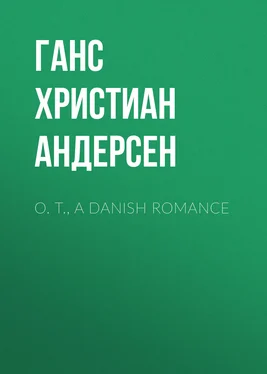

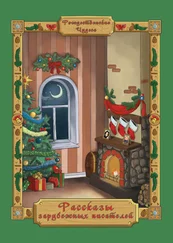
![Ганс Андерсен - Ганс Чурбан[другой перевод]](/books/95480/gans-andersen-gans-churban-drugoj-perevod-thumb.webp)
